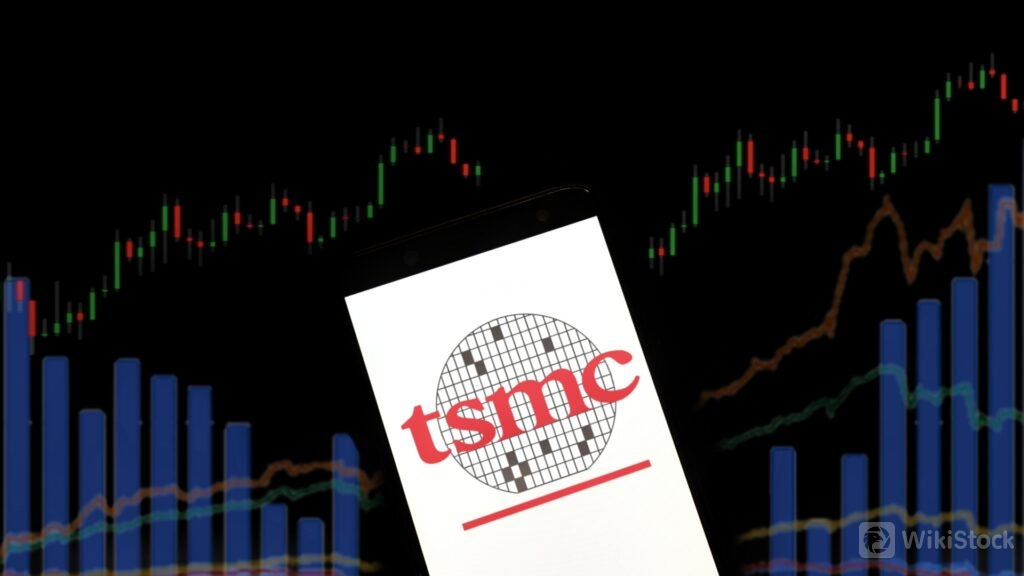Taiwan Semiconductor Arbitrage Trade Faces Challenges As US Stock Premium Hits 15-Year High: 'AI Boom Is

The popular arbitrage trade involving Taiwan Semiconductor Manufacturing Co. TSM is causing unexpected pain as the U.S. stock premium over its Taiwanese counterpart reaches a 15-year high.
What Happened: The premium of TSMC‘s American depositary receipts over its Taiwan stock has surged to 22% this quarter, the highest average since 2009, Bloomberg reported on Monday. This surge is attributed to the U.S.’s growing enthusiasm for artificial intelligence.
Despite a 66% increase in ADRs and a 53% rise in Taipei shares this year, both are still trading below their 2021 valuation highs. The ADRs accessibility to foreign investors and their inclusion in various indices and exchange-traded products have contributed to their outperformance.
Arbitrage involves simultaneously buying and selling the same or similar asset in different markets to profit from minor price differences. It exploits short-term variations in the price of identical or similar financial instruments across different markets or forms.
“It's supply/demand dynamics,” said Brian Freitas, founder of research firm Periscope Analytics. “Not all foreign investors can hold the Taiwan stock so they just prefer owning the ADRs. Plus there are some indices which only reference the ADR, so ETFs then basically buy up the U.S. shares.”
ADRs have historically traded at a premium due to their fungibility, unlike the Taiwan shares, which require special regulatory approval for conversion into the U.S. equivalent. The ADRs are also heavily owned by fund managers, making it challenging for them to increase their position further.
Jon Withaar, head of Asia special situations at Pictet Asset Management, noted that the AI sector remains strong, with NVIDIA Corp.NVDA alone valued at over $3 trillion. The ADRs premium over the local stock has risen to an average of almost 17% this quarter, indicating a continued AI boom.
“The AI boom is not over,” Withaar said. “I'm happy to wait for a crescendo widening and perhaps even panic unwinding.”
Why It Matters: TSMC‘s ADRs have been in high demand due to the global AI frenzy. Companies like Apple Inc.AAPL, Qualcomm Inc.QCOM, Nvidia, and Advanced Micro Devices, Inc.AMD have almost fully booked TSMC’s 3nm chip production process until 2026, reflecting the rapid evolution of AI technology.
Meanwhile, TSMCs European subsidiary, European Semiconductor Manufacturing Co, plans to hire nearly 2,000 employees from Germany and other European countries. This move comes amid a trend of job cuts in the tech sector, as companies reallocate resources to meet the demands of advancing AI technology.
Taiwan Semiconductor stock gained over 64% in the last 12 months. Investors can gain exposure to the semiconductor sector via First Trust Exchange-Traded Fund VIII First Trust Active Global Quality Income ETFAGQI and First Trust S-Network Electric & Future Vehicle Ecosystem ETFCARZ
Price Action: Taiwan Semiconductor Manufacturing Co. Ltd.s U.S.-listed stock closed at $172.51 on Friday, down 0.23%. Year to date, it has increased by 69.91%, and over the past year, it has risen by 64.97%. Over the past five years, the U.S.-listed stock has surged by 355.89%.
In comparison, TSMCs Taipei-listed stock has increased by 55.31% year to date, 57.98% over the past year, and 270.22% over the past five years, according to the data from Benzinga Pro.
Image Via Shutterstock
Disclaimer:This content was partially produced with the help of AI tools and was reviewed and published by Benzinga editors.
© 2024 Benzinga.com. Benzinga does not provide investment advice. All rights reserved.
Why is the oil rally heating up in the new year?
Precious metals rise, how to allocate in the medium and long term
Key areas for mutual funds to make money in 2025
Yushu Technology's robot dog explodes the market!
Check whenever you want
WikiStock APP
